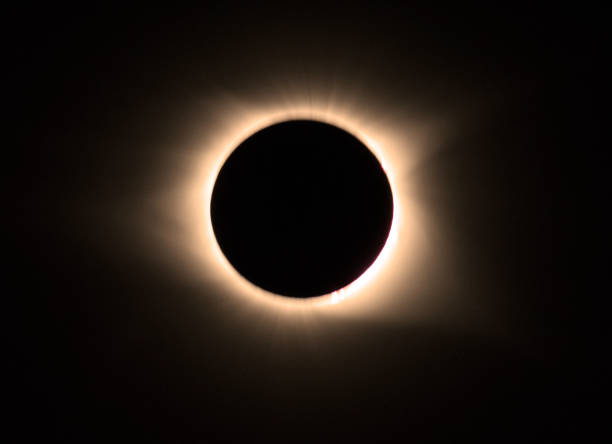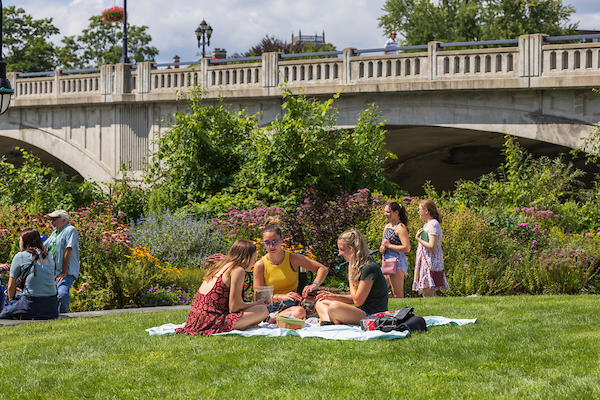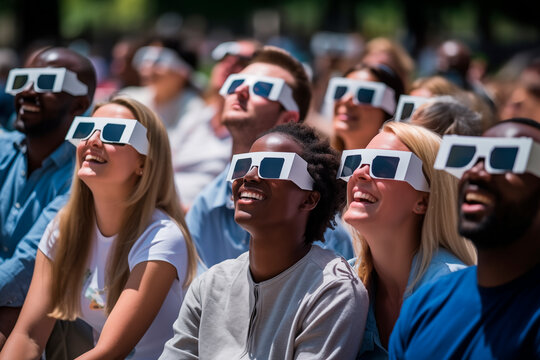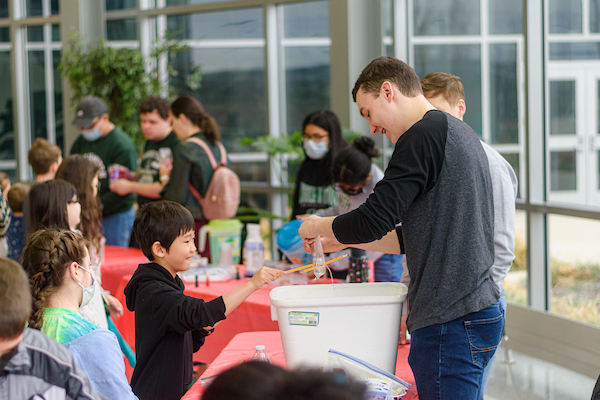Everything You Need to Know About the Upcoming Solar Eclipse
A total eclipse will sweep across 15 states on April 8, allowing millions of people to view this rare event, including members of the Binghamton community. Make sure you are prepared for this rare event with these facts, tips, and important times!
When will it happen?
The eclipse will begin at 2:08 p.m. and last until 4:34 p.m., making it visible for over two hours.
Why is this eclipse significant?

The last total eclipse was on August 21, 2017, the first eclipse spanning from the Atlantic to Pacific coasts since 1918. Its totality was not visible anywhere in New York, but this year our area falls in its path, making this a significant event in Binghamton.
While the Binghamton area will not experience full totality, the eclipse will be visible to observers. Scientists predict that the next one (in 2044!) will only reach three states. So, if you want to witness a total eclipse, April 8 is the time to do it!
Where are the best spots to view the eclipse?
Check out this interactive map that shows the visibility of this special event. If you plan on traveling, be safe!
Where can I watch it locally?

The best places to witness the eclipse in the Southern Tier include open parks or waterfront areas with unobstructed views of the sky. Otsiningo, Confluence and Recreation Parks are ideal locations for off-campus Binghamton students looking to experience the celestial event in our area.
How can I safely view the eclipse?

Be sure to get eclipse glasses so you can safely view the sun when it is partially visible. The only time you can view the eclipse without protective eyewear is during totality, a 3-4 minute period in which the moon completely covers the sun. Also, you can’t look at the eclipse through a camera, binoculars or a telescope without proper solar filters or you will risk burning your retinas.
If you still want to watch the eclipse, but cannot obtain glasses or a filter beforehand, don’t worry – there is an easy solution! You can make a pinhole camera involving two pieces of paper and a small hole in one. Line it up with the sun to create an image on the other side, which creates another way to view the eclipse before totality.
Be aware that sunglasses are different from eclipse glasses and will not protect your eyes. Make sure to take precautions and be prepared for viewing beforehand.
How is Binghamton celebrating?

If you’re interested in surrounding yourself with like-minded individuals who want to watch and learn about the eclipse, Binghamton plans to host three events!
Solar Eclipse Watch Party on the Quad
Pick up your special glasses in Old Union Hall on Monday, April 8, anytime from noon-3 p.m., then gather on the Peace Quad to watch the eclipse. Refreshments will be provided.
Science Live! in the Bartle breezeway
Also, while you’re on campus, check out Science Live! sponsored by Harpur Edge. It’s happening from 2-4:30 p.m., in the breezeway of the Bartle Library. Watch and vote on live science demos put on by students.
STEM Fair: Eclipse Extravaganza planned April 6
Join campus groups and community partners for a STEM Fair: Eclipse Extravaganza from noon to 3 p.m. Saturday, April 6, at Center Court in the Oakdale Commons, Johnson City. There will be opportunities to learn about the April 8 eclipse (and pick up eclipse glasses) and other family-friendly STEM-oriented activities, including a demonstration of 3D printing. Participating groups will include the Physics Outreach Project, the Roberson Museum, TechWorks, and the Kopernik Observatory & Science Center. The event is organized by the Center for Civic Engagement, the President’s Office, and the Division of Research.
Total Eclipse of the Art: A pop-up exhibition celebrating celestial bodies
The Binghamton Art Museum is hosting “Total Eclipse of the Art: A pop-up exhibition celebrating celestial bodies,” from April 2-11. The exhibit highlights art in Binghamton’s permanent collection focusing on the sun, moon and stars. You can view this exhibition in the Kenneth C. Lindsay Room in the Lower Galleries located in the Fine Arts Building. It’s free and open to the public!
Don’t miss this rare event!
Sara Puskar is a senior majoring in political science with a minor in women, gender, and sexuality studies, and an intern for the Office of Media and Public Relations. She’s also a student-athlete for Binghamton women’s track and field team and is involved in content creation for the University’s TikTok account. She enjoys cosmetics, skiing, and golf.
Have questions, comments or concerns about the blog? Email us at social@binghamton.edu.
